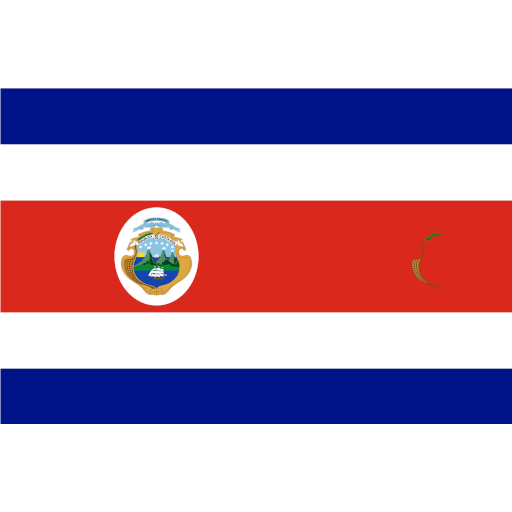On December 28, 2019 the Periodic Amendments to the Tax Law for 2020 were published in the Official Gazette of the Federation [in Spanish: el Diario Oficial de la Federación] (DOF), which came into effect on January 1, 2020, and will be in force until December 31, 2020. It is important to note that there are some rules that will take effect at a later date that are explained further on.
These stem from the Tax Reforms carried out in the 2020 tax year, rules regarding Income Tax, the Mexican Internal Revenue Code [in Spanish: el Código Fiscal de la Federación] (CFF), and the Value-Added Tax [in Spanish: el Impuesto al Valor Agregado] (IVA). Below are listed the rules that we consider relevant to mention for the purposes of taxpayer compliance.
Structure of the Periodic Amendments to the Law
Once of the most relevant changes to the 2020 Periodic Amendments is the newly added “Section 12” regarding the provision of digital services. It´s worth mentioning that through the transitory provision established in the aforementioned Section, as well as its particular rules, they will come into effect as of June 1, 2020.
General Provisions
Information and documentation that the third-party fiscal associate will provide
A rule is added that clarifies that because the third-party fiscal collaborator may have provided information and documentation that may be used by the authorities in a procedure corresponding to fictitious receipts, the collaborator will not acquire the right to be informed of the acts issued within the same; with the exception of the information published in the Official Gazette of the Federation [in Spanish: DOF], which constitutes public information.
Obligation of tax advisers and taxpayers to provide information to disclose reportable schemes
As of January 1, 202, tax advisers must disclose reportable schemes by submitting information through a tax return that is made known to the tax authorities.
Income Tax Law
Deduction of expenses and investments incurred and foreign legal figures that are fiscally transparent
This establishes that residents in Mexico and foreign residents with a permanent establishment in a member country of a transparent legal figure will be able to make expense deductions, provided that they are made in the same proportion that corresponds to their average daily participation, according to the income that they have accumulated and if they fulfill the specific requirements.
Section on foreign entities and foreign legal figures that are fiscally transparent
This determines that foreign entities or legal figures are fiscally transparent when they are not residents for Income Tax purposes in the country in which they are established, or when they have the main administration of their business or the address of their headquarters and income attributed to their members, partners, shareholders, or beneficiaries.
Moreover, it establishes that foreign entities that have legal personality are companies, created or registered entities under foreign law, and companies registered under Mexican law are foreign residents.
Payment deductions made by Mexican companies for companies considered fiscally transparent for the purposes of foreign legislation
This authorizes the aforesaid payment to be deducted to the same extent in which the revenues earned by the company are cumulative by the partners or shareholders in the immediately following tax year, and provided that there is a treaty to avoid double taxation with the country where they are residents, and they must keep their accounting records for 5 years.
Authorization for civil society organizations and trusteeships for receiving tax-deductible donations
The aforementioned regulation will be reformed to clarify authorization requests already granted, and they will not be affected when they fail to comply with the submission of the documents that are exclusively related to applications for additional activities.
Disclosure statement for employment subsidy and credit
It mentions that the obligation regarding the disclosure statement is completed when you comply with the issuance of the Digital Tax Receipt for Payroll [in Spanish: CFDI], provided that the said receipts are issued in accordance with what is established in the instruction guide published by the Mexican Tax Administration Service [in Spanish: SAT]. The employment subsidy will not be creditable for those who make payment by way of salaries and wages and who have not clearly indicated the amount of the subsidy and separately in the Digital Tax Receipt Payroll given to workers.
Procedure for submitting an annual Income Tax return for legal entities in the General Tax Regime
The annual Income Tax return for legal entities will be already pre-filled in with the information obtained from the interim payments submitted by the taxpayer, as well as from the Digital Tax Receipt for Payroll that was issued to the worker. In case the taxpayer wishes to modify the pre-filled information obtained from the interim payments, he/she must submit amended returns of the said payments, as well as stamp the corresponding Digital Tax Receipts.
Taxpayers with a Fiscal Information Registration Number [in Spanish: RIF] discharged from tax inbox, wages and salaries, tax inbox optional
Taxpayers who pay with a Fiscal Information Registration Number are discharged from the obligation of activating the tax inbox and registering the preferring means of contact. The use of the tax inbox will be optional when it concerns taxpayers who earn revenue from salaries and wages and other benefits derived from an employment relationship, including imputed income.
Mexican Internal Revenue Code
The procedure must be observed in order to obtain an opinion of compliance with tax obligations
New cases are added and care should be taken with respect to obtaining an opinion of compliance with tax obligations. One of these is that the fiscal address of the taxpayer must be contactable.
Update of partner or shareholder information
A mechanism is established so that taxpayers may get information regarding changes in the corporate structure and its representation, and for each time it makes an amendment and incorporates new partners or shareholders; and within thirty working days following the occurrence of this situation.
Issuance of Digital Tax Receipt for withholdings and payment information
The current rule is specifically added that allows for the option of submitting a Digital Tax Receipt annually. This will not apply in case there is some other provision that establishes a different issuance period. As such, each particular case and transaction must be analyzed.
Issuance of a Digital Tax Receipt by way of 2019 fiscal year payroll
Taxpayers who during the 2019 fiscal year had issued a Digital Tax Receipt for Payroll and those that may contain errors or omissions may, on a one-time basis correct them, provided that the new receipt is issued by February 29, 2020 at the latest, and the receipts that replaced them are cancelled.
Value-Added Tax Law
Withheld VAT 6%
This establishes that VAT is withheld at 6% and will be applicable to remunerations paid in full as of 2020, and for which taxpayers will be obligated to make the withholding. However, the corresponding receipt was issued prior to December 31, 2019. The withholding regarding the aforementioned remuneration will apply only for payments made after January 10, 2020.
Withholding VAT rate for employment outsourcing
Individuals engaging in entrepreneurial activities or legal entities that may have petitioned for a fiscal stimulus decree for the northern border regions, and who are obligated to make the withholding for services provided through employment outsourcing, will be able to opt for making the corresponding withholding of 3% of the VAT over the value of the remuneration that had been paid in full.
Notice of commencement of activities for identifying the adjustment period of creditable VAT from the preoperative period and for investments
The rule is maintained regarding how the taxpayers must inform the authorities before they start their activities and finish the preoperative period, with the purpose of identifying the month in which the corresponding adjustment is made.
Provision of Digital Services
The rules relating to the corresponding transactions are established and will be applicable as of June 1, 2020 for the following cases:
I. Foreign residents that provide digital services to receivers located in national territory;
II. Digital intermediation services between third parties;
III. Individuals who dispose of assets, provide services, or grant the temporary use or enjoyment of goods through the use of technology platforms.
In JA Del Río we are available to support you and to inquire into specific areas of these rules, and to make the necessary implementations of the same.























